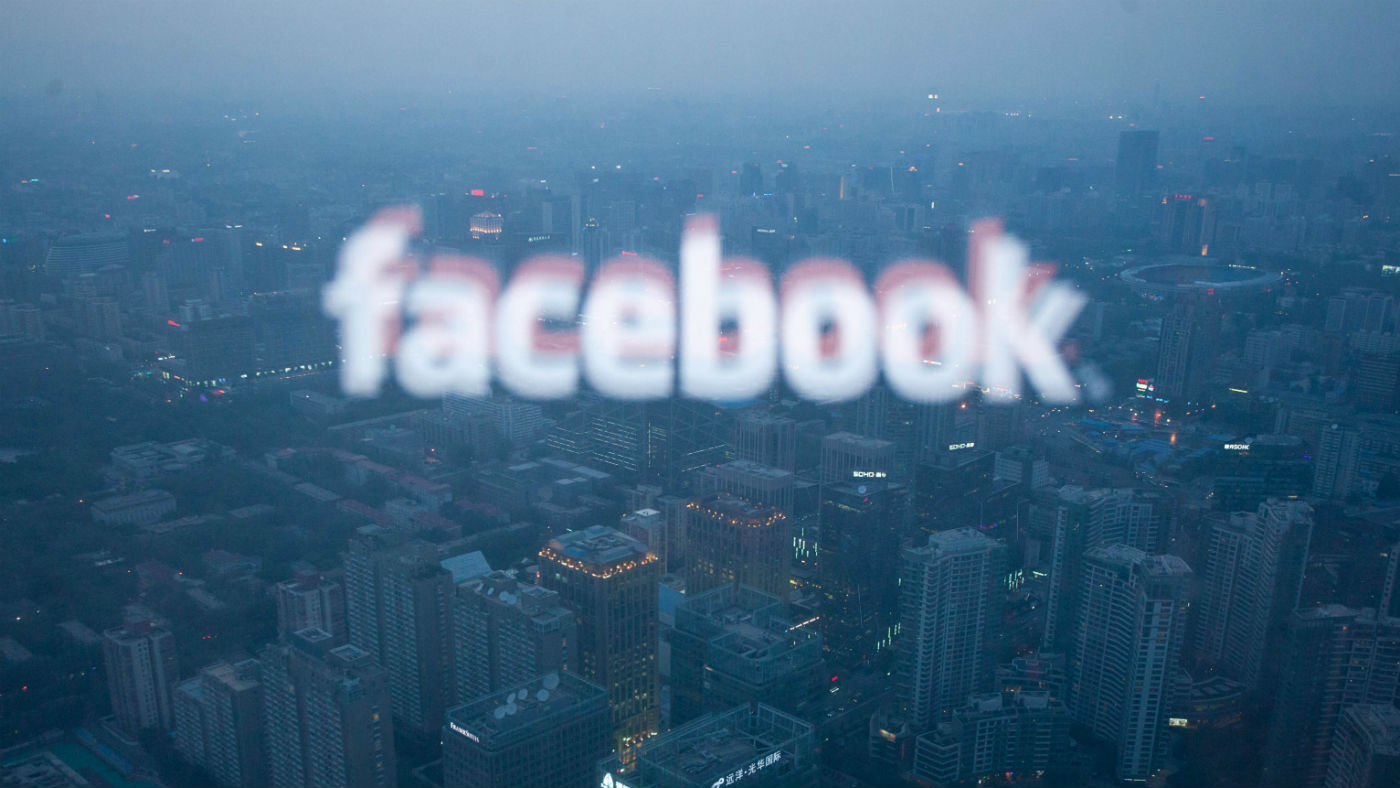Facebook share price sinks as China plans hit great wall
Social media giant stocks plunge 20% after user growth stagnation

A free daily email with the biggest news stories of the day – and the best features from TheWeek.com
You are now subscribed
Your newsletter sign-up was successful
Facebook’s plans to tap into China’s huge user market appear to have stalled, on the same day its stock fell by more than 20% on news that its user growth had flatlined.
Like all major US tech platforms, Facebook has been blocked in China since 2009. On Wednesday, however, is said it had finally secured a licence to set up an “innovation hub to support Chinese developers, innovators and start-ups”.
This would have allowed Chinese social media consumers to use Facebook's main app, or Facebook-owned Instagram and WhatsApp, giving the company an important foothold back in China.
The Week
Escape your echo chamber. Get the facts behind the news, plus analysis from multiple perspectives.

Sign up for The Week's Free Newsletters
From our morning news briefing to a weekly Good News Newsletter, get the best of The Week delivered directly to your inbox.
From our morning news briefing to a weekly Good News Newsletter, get the best of The Week delivered directly to your inbox.
But just 24 hours later, it appeared these hopes were in tatters after widespread reports the licence had been withdrawn from the government database.
The BBC says “it is possible that Facebook has fallen victim to competing political and business interests”, while other reports suggest the reversal was demanded by the Cyberspace Administration of China, which was angry that it had not been consulted more closely.
Chinese internet users can only access domestic social media sites such as Weibo, Renren and YouKu, which the government can monitor.
Facebook have invested a lot of time, money and effort trying to tap in to China’s billion users. Chief Executive, Mark Zuckerberg, has jogged around Tiananmen Square, reportedly read President’s Xi Jinping’s collected speeches and even learned Mandarin.
A free daily email with the biggest news stories of the day – and the best features from TheWeek.com
“The strange incident underscores how much of a challenge it has become for the globe-spanning social network to get into China — even just to open an innovation centre,” says The New York Times. “While the about-face does not definitively end Facebook’s chances of establishing the company, it makes success very unlikely.”
News it had been denied access to this hugely lucrative new market came just hours after its stock price plummeted on reports user growth had stalled in the aftermath of the Cambridge Analytica scandal.
Facebook's share price fell by more than 20% in after-hours trading after reporting that its revenue and user growth fell short of investor expectations and signalling that growth for the rest of the year would likely be weak.
Writing before US markets opened, The Daily Telegraph said if the drop were reflected in regular trading, “it would be the biggest one-day fall ever recorded by Facebook, and could wipe more than $17bn (£13bn) from Mr Zuckerberg’s fortunes”.
Halfway through the US trading day, the share price is down 19%.
Amid months of bad press, user outrage and regulatory scrutiny, investors were spooked by figures which showed user numbers stagnating or even shrinking in some of Facebook’s most developed markets.
The number of daily users remained flat in the US and Canada and declined in Europe, something the company blamed in part on the rollout of sweeping new data protection regulations in May.